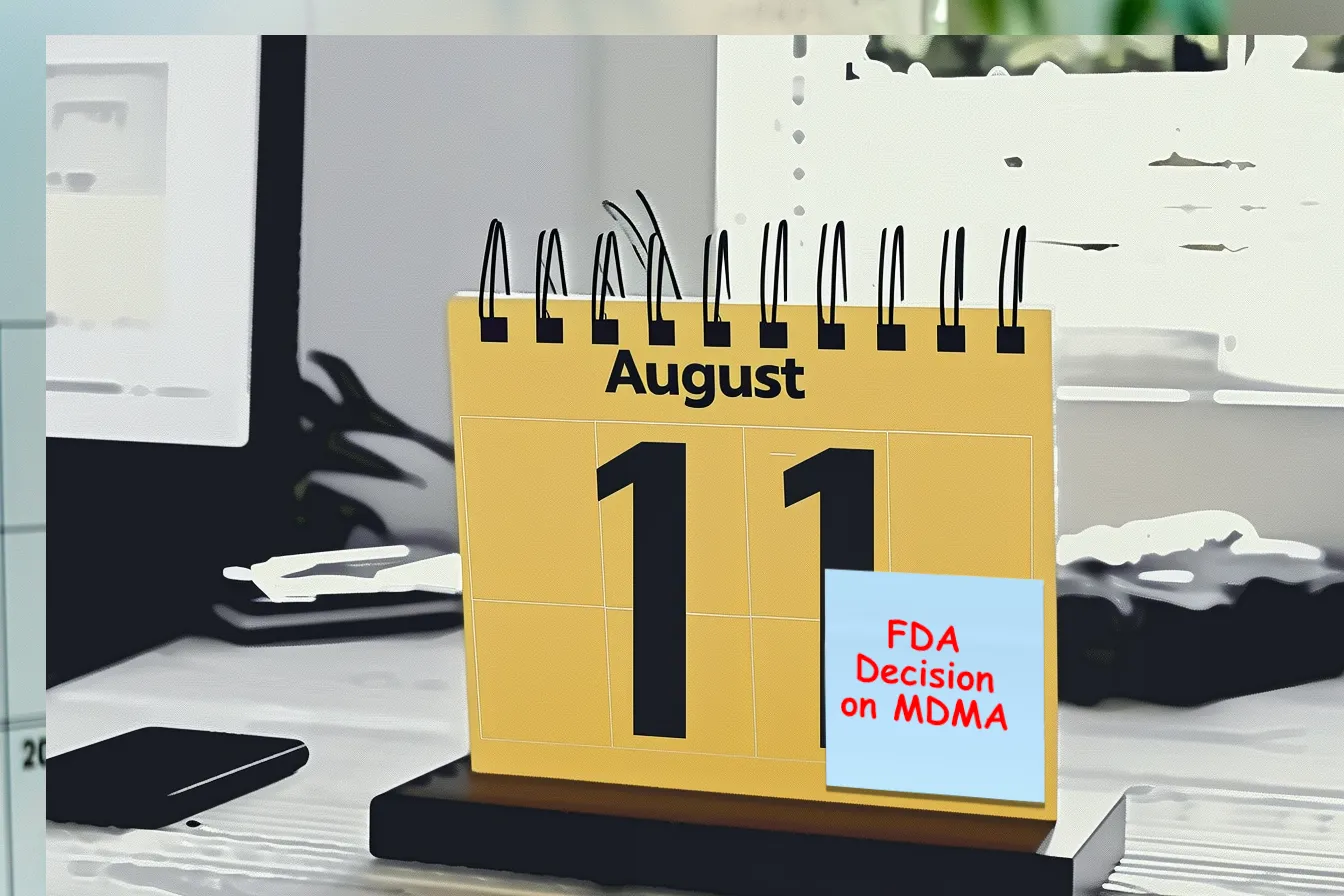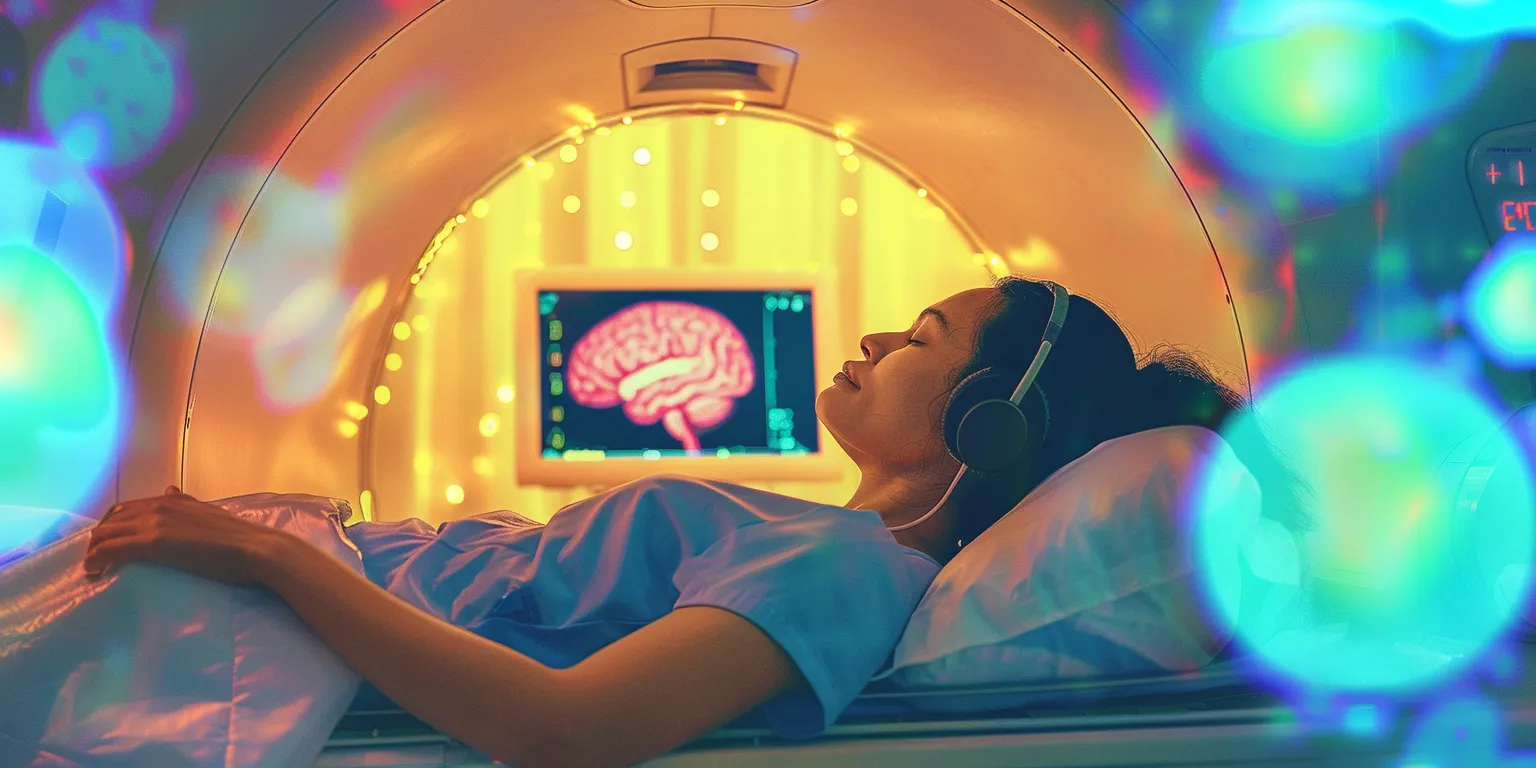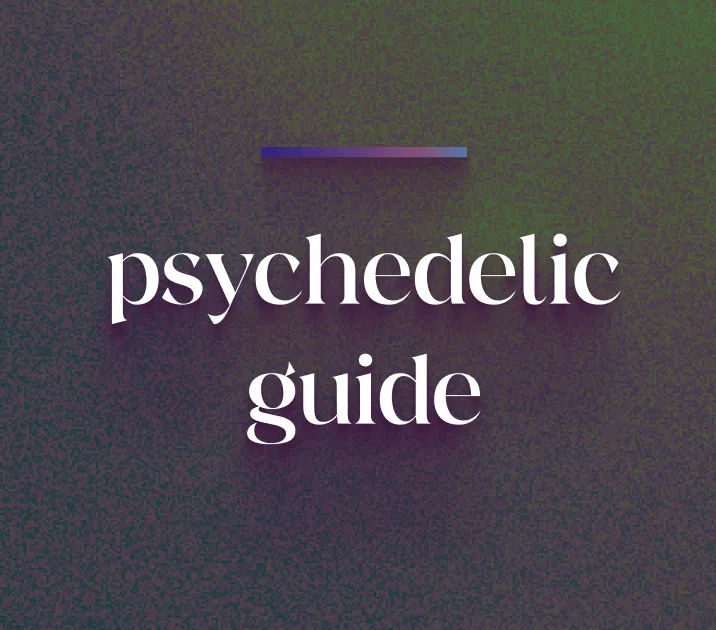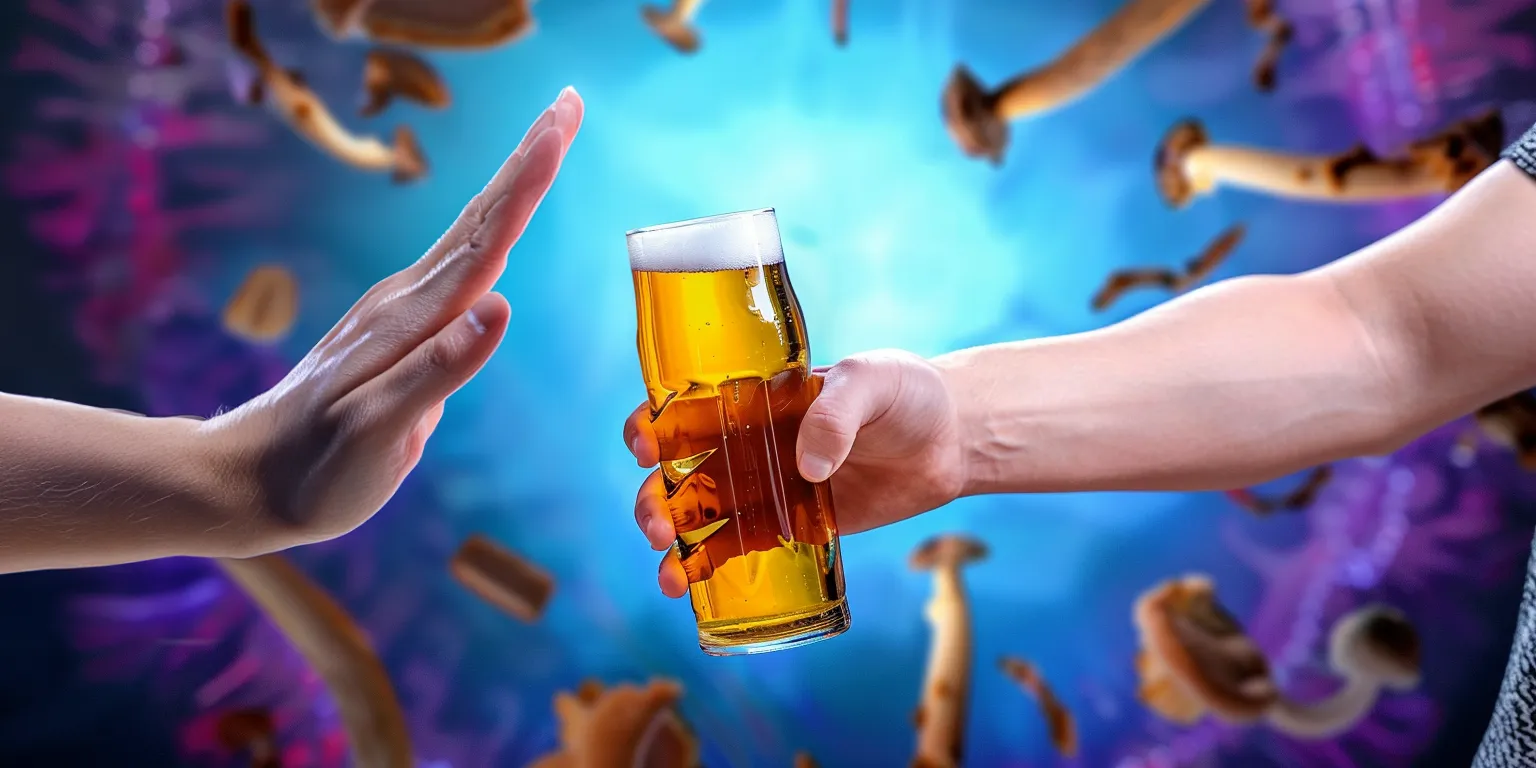In this week’s psychedelic news roundup we cover a new study that shows us the human brain while under the effects of psilocybin (aka magic mushrooms). Other news includes a new psychedelic garden at UCLA, a new direction for the Multidisciplinary Association for Psychedelic Studies (MAPS), and more.
How Psilocybin Reshapes Brain Connectivity
A recent study published in Nature has illuminated how psilocybin, the psychoactive compound in magic mushrooms, can temporarily reorganize the brain’s neural networks, particularly those governing our sense of time and self. This research not only provides a clearer picture of psilocybin’s profound impact on the brain, but also suggests why it may offer therapeutic benefits for various neurological conditions.
Study Insights:
Researchers used functional magnetic resonance imaging (fMRI) to track blood flow changes across the brain, measuring neuronal communication (chemical messages between neurons). The results indicated that during the psilocybin experience, areas that typically operate in unison became desynchronized, particularly within the default mode network. This effect lessened over time, but some changes persisted, suggesting a long-term impact on brain function.
Potential Therapeutic Effects:
The disruption of typical brain communication patterns might be why psilocybin is seen as potentially beneficial for treating conditions like depression and post-traumatic stress disorder (PTSD), as the lasting change in how the default mode network interacts with other brain regions could alter ingrained patterns of thought and behavior that are characteristic of these disorders.
Keep Up with Uncensored Psychedelic Trends
Join our newsletter at Psychedelics Uncensored.
We respect and protect your privacy. By subscribing your info will be subject to our privacy policy . Unsubscribe easily at any time
Additional Observations:
This research marks a significant step in deciphering the complex ways in which psychedelic substances interact with the brain. By providing a detailed map of how psilocybin alters brain activity, scientists are better equipped to understand its potential therapeutic effects and develop targeted treatments for a variety of mental health conditions. The findings also set the stage for future studies to explore these effects in individuals with specific neurological disorders, potentially leading to new approaches in psychedelic-assisted therapy.(1)
UCLA to Pioneer Rooftop Psychedelic Garden for Therapy

As detailed by SFGate, the University of California, Los Angeles (UCLA) is advancing plans to construct a rooftop garden designed specifically for psychedelic-assisted therapy, highlighting the institution’s commitment to innovative mental health treatment methods. This “living laboratory,” envisioned for the eighth floor of the university’s Semel Institute for Neuroscience and Human Behavior, aims to create a serene environment conducive to the administration of therapeutic psychedelics.
Key Aspects of UCLA’s Plan:
The initiative is part of UCLA’s broader efforts to explore and expand psychedelic-assisted therapies, an area where the university is already a leader with numerous ongoing clinical trials.
The Therapeutic Potential of Environment:
Helena Hansen, director of the Semel Institute, emphasized the project’s innovative approach to reimagining medical treatment, suggesting that the environment can significantly influence the efficacy of both conventional and psychedelic therapies. This concept is supported by research suggesting that patient surroundings play a crucial role in the success of psychedelic treatments.
The proposed garden is designed to be more than just a clinical space; it aims to be a sanctuary where therapeutic and calming natural elements like plant life and water sounds contribute to the healing process. This approach reflects a growing recognition within the medical community about the importance of the environment in therapeutic processes. The project has garnered positive reactions from the academic community, with experts from other institutions expressing admiration for UCLA’s forward-thinking approach.
As UCLA continues to fundraise and refine plans for this innovative project, the “living laboratory” stands to not only enhance the university’s research capabilities but also provide a model for integrating nature and therapy in mental health treatment, potentially setting a new standard for therapeutic environments.(2)
Keep Up with Psychedelic Trends
Get uncensored psychedelic news, events, and updates. Join Psychedelics Uncensored!
We respect and protect your privacy. By subscribing your info will be subject to our privacy policy . Unsubscribe easily at any time
MAPS Redefines Its Role as FDA Decision on MDMA Therapy Nears

Green Market Report details how the Multidisciplinary Association for Psychedelic Studies (MAPS) is adjusting its focus as the FDA nears a decision on MDMA-assisted therapy for PTSD, amid a backdrop of regulatory challenges and public scrutiny. During a recent webinar, MAPS leaders discussed their decreased role in the process now led by Lykos Therapeutics, a spin-off dedicated to navigating the therapy’s approval.
Key Updates from MAPS:
Future Directions for MAPS:
As the decision deadline of August 11 approaches, MAPS leaders have reassured their community of their ongoing commitment to the advancement of psychedelic therapies, regardless of the immediate outcomes concerning MDMA’s regulatory journey. This pivotal moment underscores MAPS’ role not just in drug development but as a key player in the broader context of psychedelic research and policy reform.(3)
MDMA for Dogs – Innovative Research at CU Denver’s New Psychedelic Research Center

CPR News explores the University of Colorado Denver’s establishment of its new Center for Psychedelic Research. This initiative is a testament to the university’s commitment to exploring the frontiers of medicine and science and aligns with Colorado’s progressive stance on psychedelic substances.
Research Initiatives and Potential Studies:
01
MDMA for Dogs:
Background: Inspired by previous studies on rats, where MDMA showed the potential to ease fear memories, the center is considering a similar approach for dogs with trauma.
Objective: To explore if MDMA can aid dogs with past abuse or neglect by disrupting the reconsolidation of traumatic memories, potentially easing their emotional burdens.
02
Neurogenesis and Psilocybin
Focus: Investigating whether psychedelics like psilocybin can promote neurogenesis—the growth of new neurons—which was once thought impossible.
Potential Applications: This research could lead to breakthrough treatments for brain injuries or strokes by harnessing psychedelics’ capability to enhance brain plasticity.
03
Reducing Inflammation:
Study Goals: To determine if psychedelics can directly or indirectly reduce inflammation, potentially offering new treatments for autoimmune disorders or chronic inflammatory conditions.
04
Psilocybin for Terminal Patients:
Current Project: A federally funded study is already underway to see if psilocybin can help cancer patients deal with the existential distress of a terminal diagnosis.
Future Plans: The center aims to expand this research, potentially speeding up outcomes through increased funding and resources.
Beyond Clinical Medicine:
The Center for Psychedelic Research isn’t just looking at medical applications, it’s set to delve into the legal and social implications of Colorado’s psychedelic policies, particularly the state’s regulations on psilocybin. This includes:
However, CU’s way forward faces some challenges. One significant hurdle in psychedelic research is the difficulty in conducting double-blind studies, which are the gold standard for scientific research. Psychedelics’ profound effects make it easy for participants to discern whether they’ve received a placebo or the actual drug, potentially skewing results.
As the center begins its journey, fundraising and staffing are immediate priorities, with plans to expand as resources allow.(4)
Sources

1. Kozlov, M. (2024). Your brain on shrooms — how psilocybin resets neural networks. Nature. https://doi.org/10.1038/d41586-024-02275-y
2. Black, L. (2024, July 17). Calif. University wants to build a rooftop garden for taking psychedelic drugs. SFGATE. https://www.sfgate.com/cannabis/article/ucla-psychedelic-rooftop-garden-plans-19578137.php
3. Jackson, A. (2024, July 17). MAPS distances itself from Lykos, and provides a road map for the future. Green Market Report. https://www.greenmarketreport.com/maps-distances-itself-from-lykos-provides-road-map-for-future/
4. Kenney ·, A. (2024, July 15). MDMA for dogs? 4 ideas (and one big concern) from CU Denver’s new psychedelic research center. Colorado Public Radio. https://www.cpr.org/2024/07/15/cu-psychedelic-research-center/
This material is not intended as a replacement or substitute for any legal or medical advice. Always consult a medical professional about your health needs. Psychedelics are widely illegal in the United States, and readers should always be informed about local, state, and federal regulations regarding psychedelics or other drugs.

 David Connell
David Connell







 Jason Najum
Jason Najum